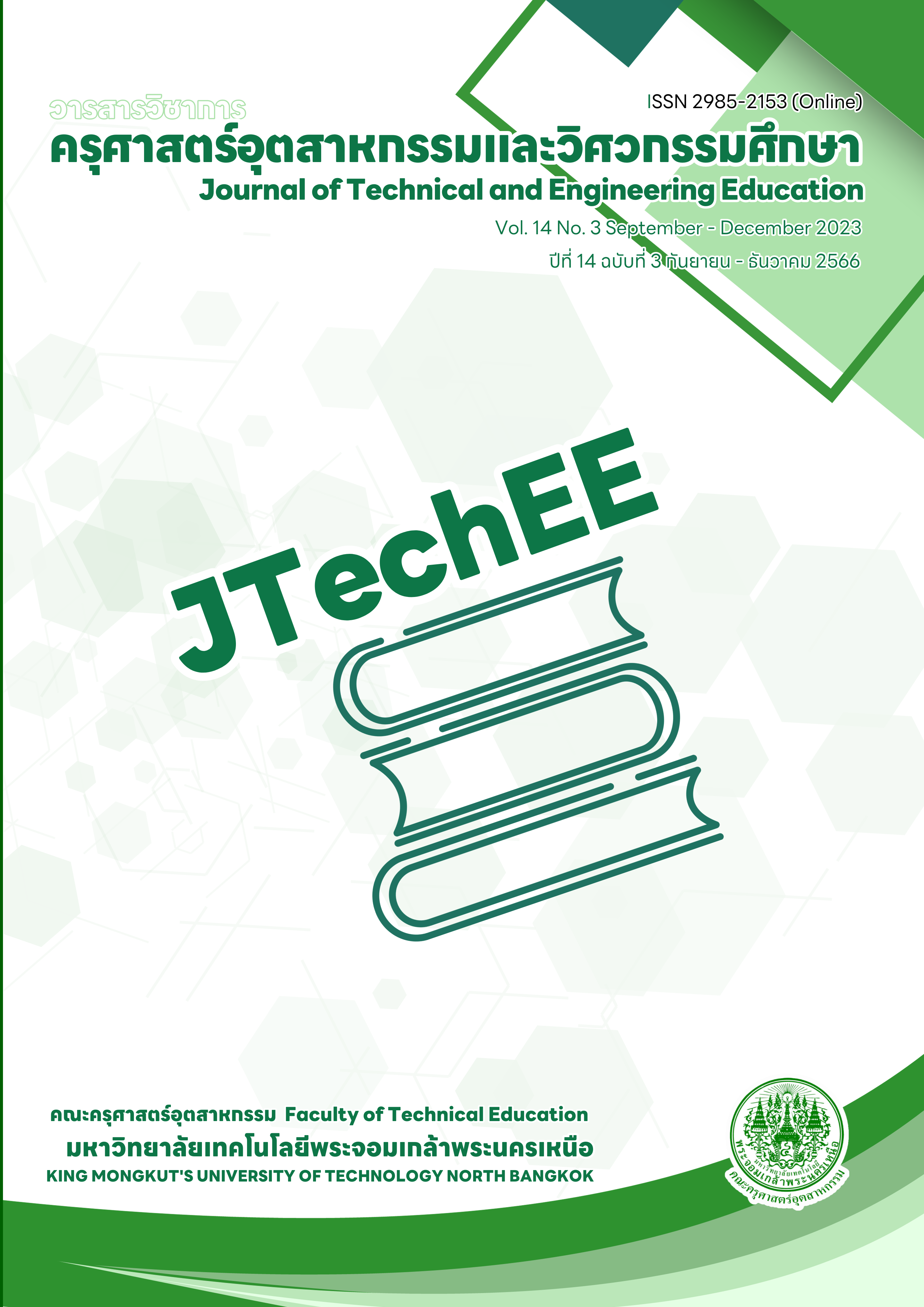Assessing the Curriculum for Foundation Courses in Preparation for Bachelor of Science in Technical Education Program for High School Students Learning Management within the Academic Collaboration Network between Rajamangala University of Technology Thanyaburi and Network Schools Enabling Progression to Higher Education
Main Article Content
Abstract
The objectives of this research were to 1) study the condition of basic vocational learning management in higher education in the cooperation project between Rajamangala University of Technology Thanyaburi and network school and 2) evaluate curriculum on preparation basic courses for further study to Bachelor of Science in Technical Education Program for high school students learning management in the network of academic cooperation between Rajamangala University of Technology Thanyaburi and network school towards higher education. The sample used in the research were 13 related persons and 169 Grade 12th participants in the academic year 2021. The instrument consists of the questionnaire and the interview using CIPPIEST Model.
The data were analyzed by using mean, standard deviation, and content analysis. The results showed that the related persons had overall opinions on the condition of basic vocational learning management at a high level ( =4.26, S.D.=0.17). The Secondary 6th participants had overall opinions on the condition of basic vocational learning management at a high level (µ = 4.17,
= 0.18) and the related persons had opinions on the overall curriculum evaluation at a high level (
=4.20, S.D.=0.40). These can be concluded that the evaluated curriculum result can be guidelines on the learning management and can be extended.
Article Details
copyright in this website and the material on this website (including without limitation the text, computer code, artwork, photographs, images, audio material, video material and audio-visual material on this website) is owned by Journal and its licensors.
References
Amoonchat, S. (2021). Evaluation of School-Based Curriculum on Thai Language Strand of Banhindan School, Khiri Rat Nikhom, Surat Thani, by Using CIPPIEST Model. (master’s thesis). Suratthani Rajabhat University. [in Thai]
Dechworachai, S., Laopreeda, S., & Chatwatanasiri, H. (2013). Factors Affecting the Continued Enrollment from Pre-degree Students at Ramkhamheng University. Research Office, Ramkhamhaeng University. [in Thai]
Khamkhae, K., Boonyapithak, S., & Thamaphiban, W. (2014). An Evaluation of The Curriculum in Career and Technology Group Learning Strand for Prathomsuksa 6 Students of Thachamung Samuckee School Network, Ruttaphum District, Songkhla Province. Journal of Education Thaksin University, 14(2), 119-129. [in Thai]
Nillapun, M., Sirisumpun, O., Chatiwat, W., Po Ngern, W., & Markjooy, A. (2017). The Curriculum Evaluation on Doctoral of Philosophy Program in Curriculum and Instruction, Faculty of Education, Silpakorn University. Journal of Veridian E-Journal,Silpakorn University, 10(2), 1198-1216. [in Thai]
Office of the Administration Upper hignt school. (2015). Approaches for organizing learning skills in the 21st century that emphasize professional competency. Agricultural cooperative printing demonstrations of Thai co., Ltd. [in Thai]
Office of the Vocational Education Commission (2012). Policy, goal, strategy, production strategy which manpower towards the world 2012-2026. https://www.vec.go.th/เกี่ยวกับสอศ/ภารกิจและนโยบาย.aspx. [in Thai]
Panich, V. (2015). 21st Century How to create learning for students. Journal of Walailak Learning Innovations, 1(2), 3-14. [in Thai]
Pecharat, S., Intachak, A., & Rakksuol, N. (2016). State of Learning Management to Support Analytical for the Second Year Vocational Certificate Student in Suphan Ruri Proince. EAU Heritage Journal of Social Science and Humanity, 6(3), 293-300. [in Thai]
Suknaisith, A. (2020). Teacher’s Instruction That Supporting Critical Thinking For Secondary Students In Bangkok. Journal of Interdisciplinary Sripatum Chonburi, 6(1), 68-77. [in Thai]


